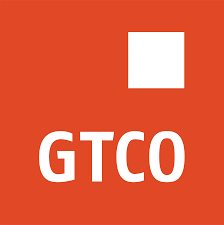Review monetary framework to cage excruciating inflationary trend, Boyo tells CBN
Leading economist and Managing Director, Cocoshen Nigeria Limited, Mr. Henry Boyo has called on the Central Bank of Nigeria (CBN) to begin the real fight against soaring inflationary trend by reviewing monetary policy framework to address the problems of high inflation, foreign exchange scarcity and high interest rate
Speaking in an interview in Lagos, Boyo argued that high inflation remains the ley instigator of high cost of funds.
According to him, “Inflation in the first place reduces consumer demand, which means less production and less productivity”.
“It also means more unemployment because if you are not producing, you send people (employees) home. If inflation is high, cost of funds also will be high. So, it is inappropriate to ask the CBN to bring down the cost of funds without first attending to the issue of inflation. The higher the cost of funds, the more difficult it is for those industries who are still surviving despite the lower demand to also survive because it is impractical to expect them to make a profit when they produce their power, water and yet they can also take loans that they have to service at about 20 per cent.
“They cannot survive for very long. If they want to survive, they may not be able to do it effectively with goods that are coming from countries where interest rate and inflation are three to five per cent. So, you can see that inflation and cost of funds go together. That is why it is inappropriate to start talking of bringing down cost of funds without bringing down inflation.
“So, the starting point is inflation, and as I said before, what is the major primary cause of inflation? Its too much money chasing too few goods. So, if you want to attack cost of funds, start with inflation.
Continuing he called on the apex bank to reduce the too much money that is chasing too few goods.
“Reduce the need for the CBN to continuously mop up excess liquidity. Then you start asking the question, where did the excess liquidity come from in the first place? The CBN is paying as high as 15 to 18 per cent for money that it doesn’t need only to come back later to say, ‘I want to help the economy. I want to intervene. Agriculture, take N20bn.’ We are borrowing excess of N6tn annually.
In 2016, they already planned ab initio that they were going to mop out N6tn that was supposed to be excess liquidity. How did it get there?
Explaining more on the best solution to the challenge of excess liquidity, Boyo said time has come for CBN to change the mechanism, saying “By changing the mechanism, you have to reduce the excess liquidity”.
“Also, make the dollars open; distribute dollar certificates for dollar revenue. The intention of these two actions is to drive away excess liquidity, minimise liquidity surplus and when you do that, you will control the inflation.
“When you control the inflation, you will control the cost of funds and in turn people can buy more because the purchasing power is more because there is less inflation. Purchasing power is more, there is more consumer demand, production and employment is straightforward because you can’t produce without people,” Boyo submitted.









